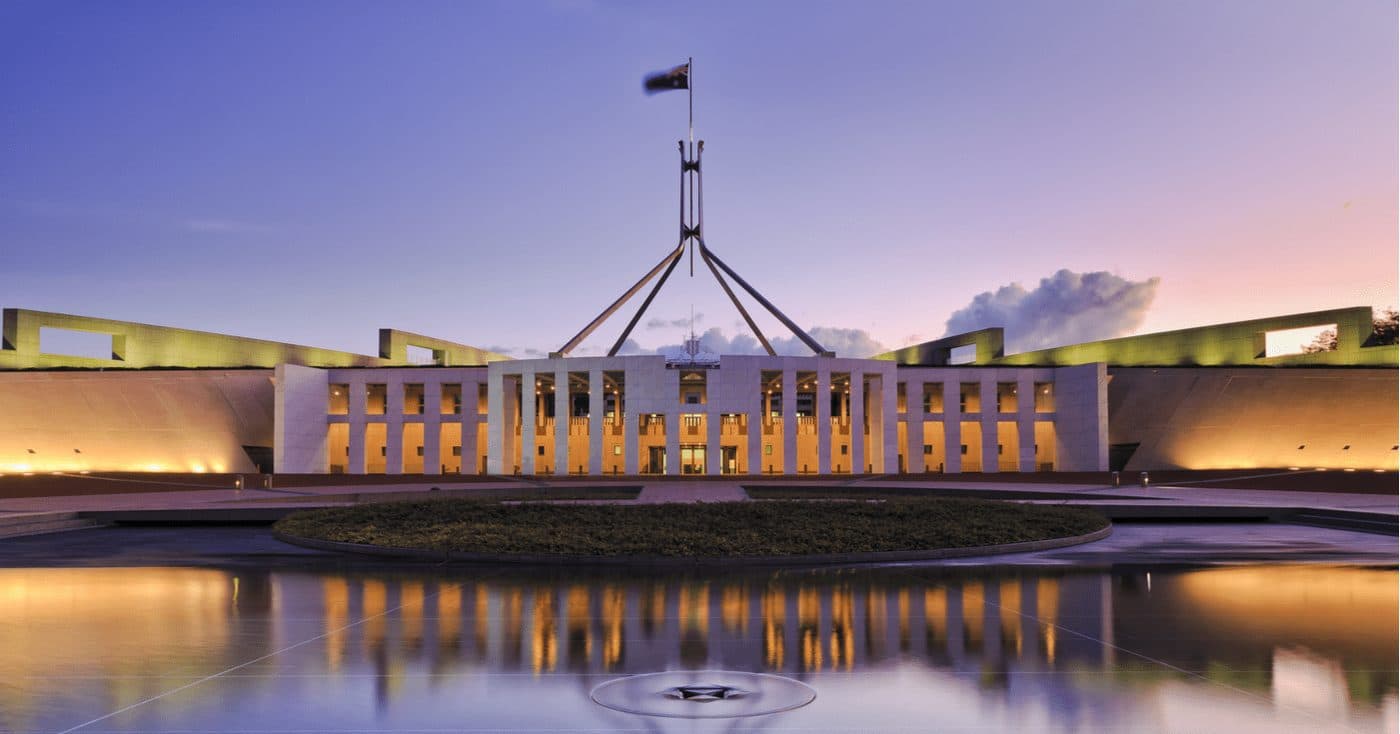Australia Set to Overhaul Payments Legislation, Creating Licensing Regime for Crypto
Australia’s Treasurer Josh Frydenberg called this the biggest overhaul of the country’s payment infrastructure in 25 years

Australian Parliament in Canberra | Source: Shutterstock
- Australia is set to introduce a new regulatory framework for payments that will “broaden the definition of the services and the products that can be regulated”
- Cryptocurrency licensure will be a part of this overhaul, as Frydenberg wants the industry to “come out of the shadows”
Australia is set to kick off the new year with an extensive series of industry consultations to develop a comprehensive update to the country’s payment regulations framework — the first in 25 years — which aims to create a licensing regime for crypto as well as the first steps towards a CBDC.
“Our reforms will transform our regulatory framework as it applies to payments and crypto assets,” Australia’s Treasurer Josh Frydenberg said during a speech. “We’re taking this area out of the shadows and bringing it into a considered regulatory framework, which is world-leading.”
Frydenberg said that the government would like “those businesses that are buying and selling cryptocurrencies to be properly licensed.”
According to Frydenberg, more than 800,000 Australians own some form of digital assets.
The Treasury aims to wrap up consultations with the industry and other stakeholders on depository and taxation arrangements for crypto. By the end of 2022 the department wants to have implemented a risk-based regulatory regime for crypto licensing, instead of the current one size fits all. A report from the Board of Taxation on a framework for the taxation of digital transactions and assets is also expected.
Frydenberg also said that Australia is set to examine the potential to integrate Decentralized Autonomous Organizations (DAOs) into Australia’s legal and financial regulatory frameworks.
Work will also begin next year on the first steps of creating an Australian CBDC, according to Frydenberg. Even though the Reserve Bank of Australia’s head of Payments Policy Tony Richards has said he doesn’t believe “that a strong policy case has emerged in Australia” Frydenberg cites global developments around the world as a reason why the Australian government needs to put more work into studying this.
The government also intends to regulate ‘buy now, pay later’ services. These services allow consumers to purchase something with a payment plan with interest rates of up to 30%. According to data from Adobe Analytics, this vertical has seen a 215% growth rate during 2021.
Get the day’s top crypto news and insights delivered to your inbox every evening. Subscribe to Blockworks’ free newsletter now.






